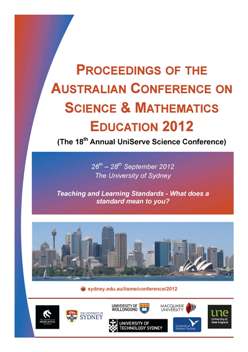The impact of systematic reflection and student learning outcomes in a first-year numeracy skills subject at a regional Australian University
Abstract
The need to equip university graduates with skills and understandings to develop solutions to the multi-faceted problems faced by 21st century society has never been greater. Solutions require creative and sophisticated approaches that rely on manipulating quantitative information collected by multiple methods and drawn from diverse disciplines. Hence, science educators are urged to place considerable effort to enhance the quantitative problem solving skills of science graduates. However, the integrated teaching of mathematics and other disciplines poses major challenges including physical and emotional disengagement when students are presented with mathematical stimuli. This can result in diminished performance with detrimental effects on mathematical confidence. Compounding the problem is the need for computing technologies to facilitate numerical calculations and graphical representations of mathematical solutions to real world problems. This poses enormous challenges for science educators, most of whom have undertaken their scientific educational training in discrete disciplinary environments. It is of vital importance that educators reflect on the impact of different methods and approaches of teaching and assessment and share experiences while learning to navigate through an evolving maize of interdisciplinary science education. This paper will report on the improved outcomes of teaching interventions that were put in place as a result of systematic reflective process by the teaching team to address issues surrounding levels of maths anxiety, computing and maths confidence, and overall student satisfaction.Downloads
Published
2012-08-24
Issue
Section
Abstracts
